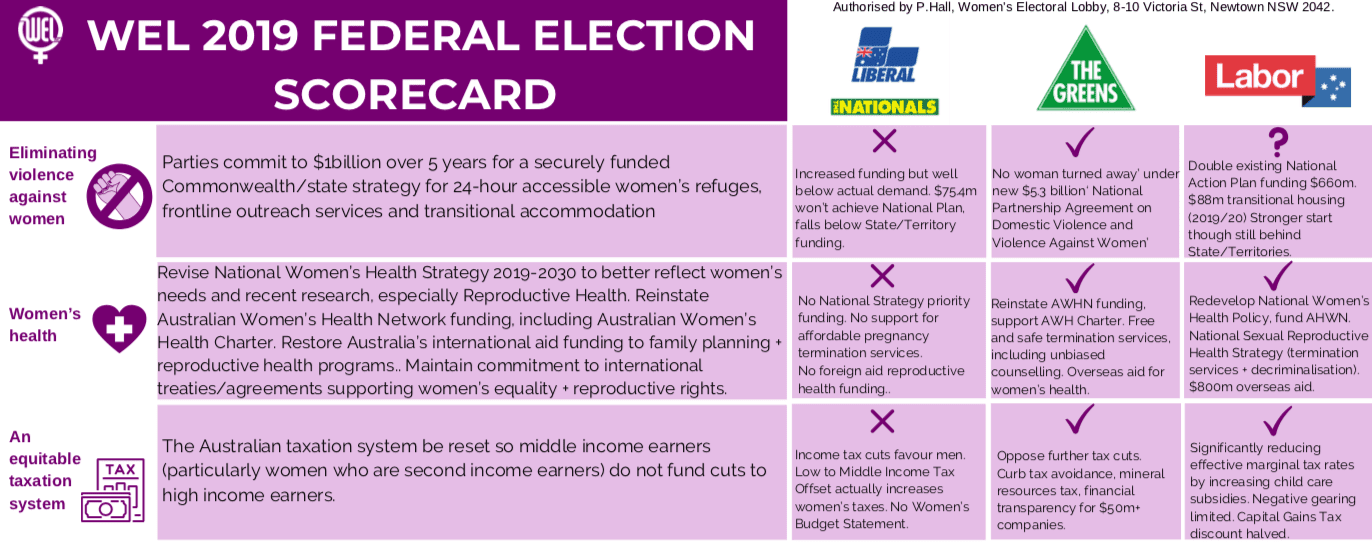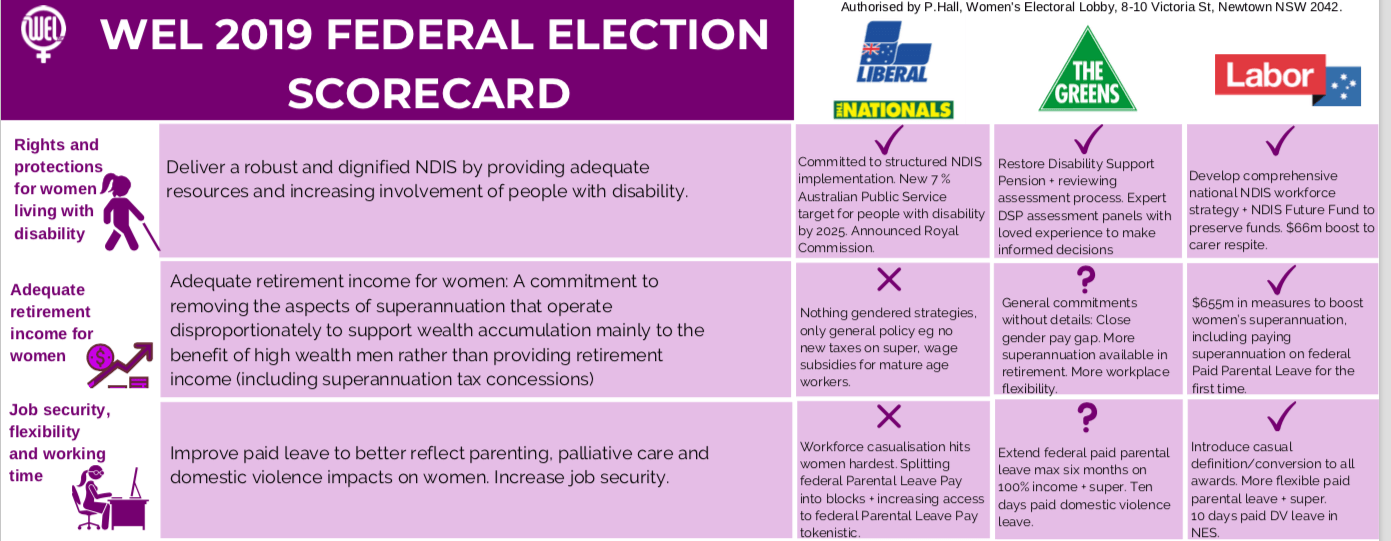The Women’s Electoral Lobby has released its 2019 Federal Election Scorecard ranking the major political parties’ commitment to 12 priority areas for women’s equality in Australia.
The priorities include eliminating violence against women, women’s health, an equitable taxation system, social services, vocational education and training, affordable housing, adequate retirement income, pay equality and childcare.
'WEL wants to make sure every vote by and for a woman, counts this Saturday,' says @jennymuir introducing the WEL Election Scorecard. @welaust #ausvotes pic.twitter.com/2uZ6OliysF
— Verity Firth (@VerityFirth) May 13, 2019
WEL has analysed the major party’s recognition of and commitment to Australian women, not by ranking every policy or election promise, but on 12 fundamental issues.
“By any expert’s assessment, achieving complete equality for women will have a positive impact on every aspect of Australian life,” WEL’s National Convener Jozefa Sobski says. “It will deliver social and economic prosperity, and it will redress the significant disadvantages women have endured for far too long in Australia.”
Sobski describes the Election Scorecard as “essential information” for all Australian women this federal election.
“Never has there been a more important voting moment for Australians to appreciate how our major political parties recognise more than 50% of the voting population’s needs,” Sobski says. “Women outnumber male voters in almost all federal electorates which means, women decide elections.”
The Scorecard is a quick reference for voters reflecting analysis undertaken by WEL’s policy experts, and is supported by a policy document underpinning each topic.
The Coalition, The Greens and Labor are given a tick, a cross or a question mark on each of the 12 policy areas.
“It is good and bad news for our major parties. We have scored Labor with 11 out of 12 positive ticks, the Coalition with 1 out of 12 positive ticks, and the Greens with 10 out of 12 ticks. This is a gender lens analysis of our national political party’s commitment, or lack of commitment, to delivering equality to 12.7 million Australian women across these key priority areas.”
Sobski says ignorance about how women and men are affected by existing and proposed policies or government actions continues to entrench and perpetuate inequality.
Wages inequality, for example, is fundamental to women’s economic insecurity and underpins every aspect of the ability of women to live an equal life.
“It doesn’t matter what politics you believe in; your vote must consider the needs of what will deliver equality for 50% of Australia’s society,” Sobski says. “Women carry the significant burden for the care and responsibility of our society’s wellbeing, and are significantly disadvantaged across all social determinants.”
Inequality isn’t happening by chance and it won’t be resolved by chance either: it will take concerted action. The 2019 Federal Election Table Talks WEL has held over the past few months in marginal electorates have consistently revealed an increasing impatience, and scepticism of political commitments for women. Women have told WEL that they have been doing all the things major parties are asking of them and still feel vulnerable and that their lives are getting harder.
“More women have an appetite to know how to have more control over their future. Political parties need to ensure that they are connecting and delivering policies to address inequality,” Sobski says.






